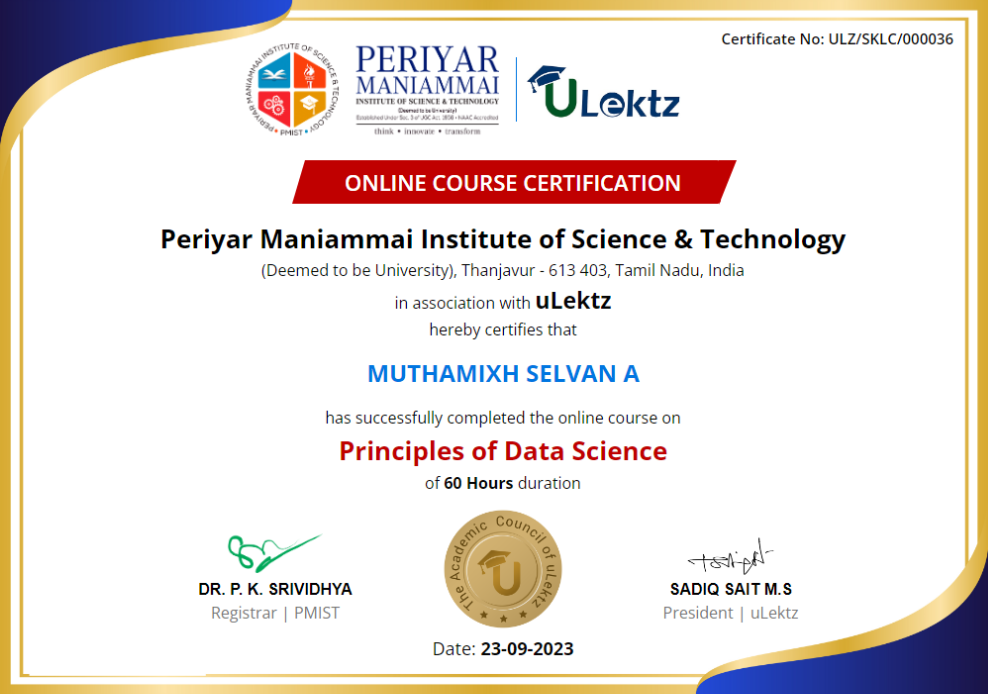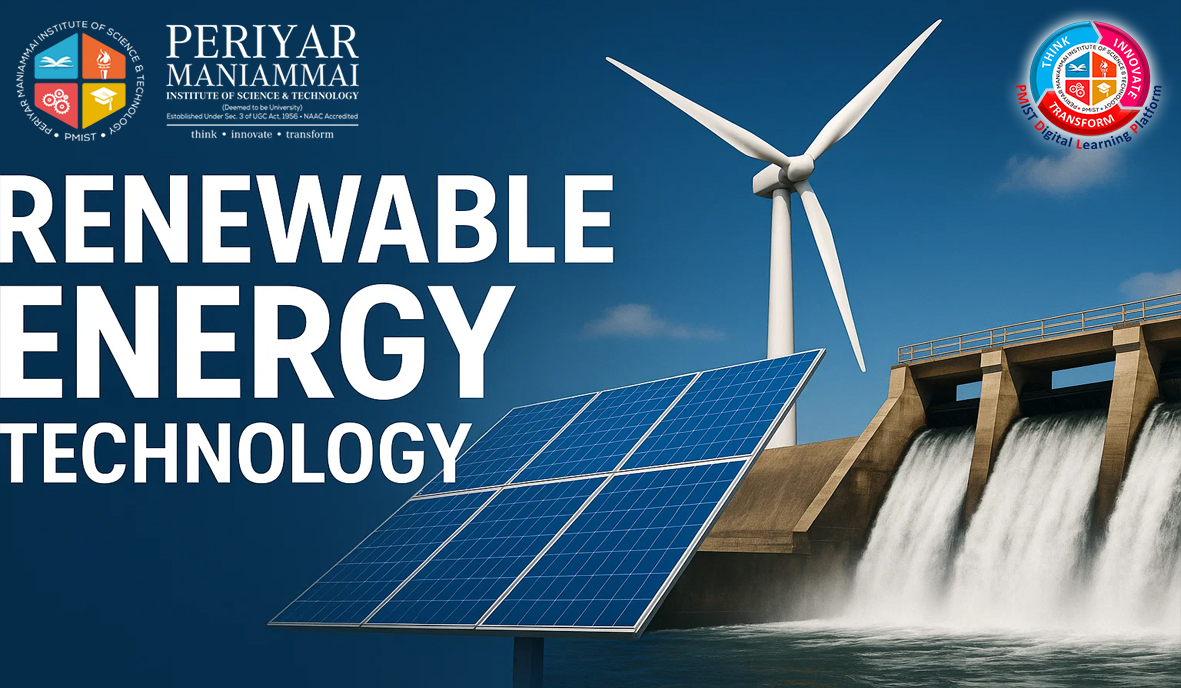

Note: Please check your Spam or Junk folder, in case you didn't receive the email with verification code.
Adaptive:Personalised Learning
This course explores various renewable energy technologies used for sustainable power generation. It includes solar, wind, bio-energy, and emerging renewable sources. Emphasis is placed on understanding the technical performance, design principles, recent advancements, and integration into hybrid systems for sustainable energy solutions. The course also assesses India's renewable energy potential and development trends.
CO1Infer power demand and identify suitable renewable energy systems to meet the demand.
CO2Explain the performance of solar collectors and apply recent PV advancements to improve efficiency.
CO3Describe wind energy performance characteristics and its integration in hybrid systems.
CO4Apply bio-energy technologies for sustainable development.
CO5Compare the potential and roles of various renewable energy resources.
Primary energy sources
Comparison: renewable vs. non-renewable energy
Renewable energy resources in India
Current usage and trends
Future potential and development of renewable energy technologies
Solar radiation and measurement
Solar thermal energy: flat-plate and concentrating collectors
Efficiency and performance evaluation
Photovoltaic energy: working, types of solar cells
PV applications: battery charging, building-integrated systems
Recent advances: grid-connected PV, BIPV systems
Wind energy principles
Wind site and resource assessment
Factors affecting wind energy capture
Components of wind turbines
Wind Energy Conversion Systems (WECS): types and classification
Hybrid systems: wind + other renewables
Environmental and economic aspects
Biomass and biogas fundamentals
Biomass conversion processes and classifications
Biogas generation: principles, types, site selection
Advantages and limitations of biogas systems
Biomass gasifiers
Economic evaluation and applications in rural/urban contexts
Hydrogen as a fuel: conversion principles
Fuel cells: types and operation
Geothermal energy: resources and Indian potential
Ocean energy: tidal and wave power systems
This module sets the stage for understanding renewable energy by comparing it with conventional sources. It emphasizes India's current renewable energy scenario, government initiatives, and the global shift toward sustainable energy technologies.
 Introduction to Renewable Energy
Introduction to Renewable Energy
 RET - Assessment 1
20 Questions
RET - Assessment 1
20 Questions
Covers the working principles and performance of solar thermal collectors and photovoltaic systems. Focus is given to practical applications such as PV battery chargers and grid-connected systems, with a look at recent technological advancements in solar energy.
 Solar Energy
Solar Energy
 RET - Assessment 2
20 Questions
RET - Assessment 2
20 Questions
Introduces wind energy concepts, site selection, and turbine technology. Students learn about WECS classifications and how wind energy is integrated into hybrid systems. Environmental and cost aspects are also discussed.
 Wind Energy
Wind Energy
 RET - Assessment 3
20 Questions
RET - Assessment 3
20 Questions
Focuses on converting biomass to usable energy via thermal, chemical, and biological methods. Includes types and functioning of biogas plants, site selection, and technology benefits/challenges, with a focus on real-world applications.
 Bio Energy
Bio Energy
 RET - Assessment 4
20 Questions
RET - Assessment 4
20 Questions
Explores emerging energy technologies like hydrogen and fuel cells, geothermal, and ocean energy systems. The module discusses technical fundamentals, environmental impact, and India's potential in these less-utilized but promising renewable sectors.
 Renewable Energy Systems
Renewable Energy Systems
 RET - Assessment 5
20 Questions
RET - Assessment 5
20 Questions
 RET - Final Assessment
50 Questions
RET - Final Assessment
50 Questions
The certificate issued for the Course will have
Only the e-certificate will be made available. No Hard copies. The certificates issued by Periyar Maniammai Institute of Science & Technology (PMIST). can be e-verifiable at www.ulektzskills.com/verify.



 90 hours Learning Content
90 hours Learning Content 100% online Courses
100% online Courses English Language
English Language Certifications
Certifications